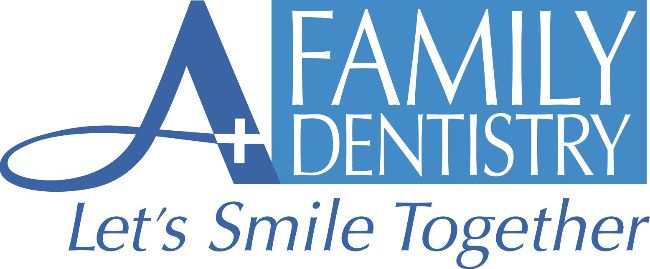Essential Preventive Dentistry for Every Family Member: A Comprehensive Guide
According to the CDC, nearly 90% of adults in the U.S. have had a cavity in their lifetime. Despite the common nature of dental issues, many can be prevented with the right care. So, what is preventive dentistry, and why is it essential for your family?
Preventive dentistry refers to the steps you can take to maintain oral health and avoid serious dental problems before they require more expensive procedures. Today, we're taking a closer look at preventive dental care treatments and habits that can protect your family's teeth for years to come.
What is Preventive Dentistry?
Preventive dentistry is all about taking proactive steps to maintain your oral health and avoid dental problems before they start. It involves regular check-ups, good daily habits, and professional treatments aimed at keeping your teeth and gums healthy.
By focusing on prevention, you can reduce the need for more serious and expensive dental treatments down the road.
There are three main components of preventive dentistry:
- Regular dental visits and check-ups
- Proper daily oral care
- Preventive treatments like fluoride and sealants
Regular Dental Visits and Check-ups
Regular dental visits are the foundation of preventive dentistry. Seeing your dentist at least twice a year allows them to spot early signs of cavities, gum disease, or other oral health issues.
Routine exams help catch problems when they are easier to treat, which can prevent more serious conditions from developing. Regular visits also allow your dentist to clean areas of your mouth that brushing and flossing might miss, keeping your teeth and gums in top shape.
Proper Daily Oral Care
Good daily oral care is just as important. Brushing your teeth at least twice a day and flossing once a day helps remove plaque, which can lead to cavities and gum disease.
Using fluoride toothpaste helps strengthen tooth enamel, while flossing removes food and bacteria between your teeth that your toothbrush can't reach. Maintaining these habits helps ensure that your mouth remains clean and healthy between dental visits.
Preventive Treatments Like Fluoride and Sealants
Preventive treatments, such as fluoride applications and dental sealants, are valuable tools in maintaining oral health. Fluoride strengthens the enamel on your teeth, making them more resistant to decay.
Dental sealants are a thin, protective coating applied to the chewing surfaces of your back teeth. These treatments can significantly reduce the risk of cavities, especially in children who may struggle to clean those hard-to-reach areas effectively.
The Benefits of Preventive Dental Care
Preventive dental care offers many advantages for your oral health and overall well-being. By focusing on prevention, you can avoid costly and painful dental problems in the future. Regular care and attention to your teeth and gums can help you save time, money, and discomfort while ensuring a healthier smile.
There are three key benefits of preventive dental care:
- Fewer dental problems and less discomfort
- Savings on future dental treatments
- Improved overall health
Fewer Dental Problems and Less Discomfort
One of the main benefits of preventive care is that it helps you avoid serious dental issues, like cavities, gum disease, and tooth loss. Regular check-ups and professional cleanings catch problems early, when they are easier to treat.
It can help reduce the need for more invasive treatments, such as fillings, root canals, or extractions. By preventing issues before they start, you can save yourself from pain and discomfort.
Savings on Future Dental Treatments
Preventive dental care can save you a lot of money over time. Treating small problems early on is more affordable than waiting until they turn into larger, more complicated issues.
For example, catching a cavity early means you may only need a filling, while waiting could result in the need for a root canal or tooth extraction. Regular visits to the dentist can help keep costs low by preventing the need for expensive treatments.
Improved Overall Health
Your oral health affects your overall well-being. Poor dental hygiene has been linked to serious health issues such as heart disease, diabetes, and respiratory infections.
By practicing preventive dental care, you not only keep your teeth and gums healthy but also reduce the risk of these broader health problems. Regular brushing, flossing, and check-ups are essential to maintaining both oral and overall health.
Key Preventive Dental Treatments for Families
Preventive dental treatments are essential for maintaining good oral health. These treatments help prevent dental problems from developing and make it easier to address minor issues before they become major ones.
The key treatments include professional cleanings, fluoride treatments, and dental sealants. Each of these plays an important role in maintaining healthy teeth and gums for the whole family.
There are three primary treatments to consider:
- Professional cleanings
- Fluoride treatments
- Dental sealants
Professional Cleanings
Professional cleanings are a vital part of preventive care. Even with regular brushing and flossing, plaque can still build up in hard-to-reach areas.
A dentist or hygienist can remove plaque and tartar during a cleaning, which helps prevent cavities and gum disease. It's recommended that everyone visit the dentist for a cleaning every six months.
Fluoride Treatments
Fluoride treatments are another important preventive measure, especially for children. Fluoride helps strengthen tooth enamel, making it more resistant to decay. It's particularly helpful for children as their teeth are still developing and can be more susceptible to cavities.
Dental Sealants
Dental sealants offer an added layer of protection for teeth, especially the molars. These thin coatings are applied to the chewing surfaces of the back teeth to prevent cavities.
Sealants are most often used for children, but adults can benefit from them as well. These treatments work together to protect your family's teeth and prevent dental problems before they start.
Daily Habits for Effective Oral Health Maintenance
Maintaining oral health goes beyond just visiting the dentist. Consistent daily habits are necessary to keep teeth and gums healthy.
Regular brushing, flossing, and other oral hygiene practices can prevent problems like tooth decay and gum disease. By sticking to these simple steps, you can avoid costly treatments down the road.
There are three key habits to practice:
- Brushing twice a day
- Flossing daily
- Using mouthwash
Brushing Twice a Day
Brushing your teeth properly is the foundation of at-home care. Make sure to use fluoride toothpaste and brush for at least two minutes each time.
Pay attention to every part of your mouth, especially the back teeth, where plaque tends to build up. Brushing twice a day helps remove plaque and bacteria that can lead to cavities and gum disease.
Flossing Daily
Flossing daily is just as important. It removes food particles and plaque between your teeth that your toothbrush can't reach.
Skipping this step can lead to cavities and gum disease in areas that are harder to clean. Be sure to floss gently to avoid damaging your gums.
Using Mouthwash
Using mouthwash can also play a role in maintaining good oral health. Mouthwash helps kill bacteria and freshens your breath.
It can reach areas that brushing and flossing miss, offering extra protection. For a complete cleaning, use mouthwash after brushing and flossing to help reduce plaque and fight bacteria.
The Importance of Regular Dental Check-ups
Regular dental check-ups are one of the best ways to maintain your oral health. Seeing your dentist every six months helps prevent minor issues from turning into larger, more expensive problems. During these visits, your dentist can spot early signs of tooth decay, gum disease, and other oral health concerns.
There are three main reasons why regular check-ups are so important:
- Early detection of dental issues
- Professional cleaning and plaque removal
- Preventive treatments and advice
Early Detection of Dental Issues
The first reason to schedule regular dental visits is early detection. Many dental problems, such as cavities and gum disease, don't show noticeable symptoms until they've become more serious. Routine exams enable the dentist to detect these issues before they worsen, which can help prevent painful and costly treatments later on.
Professional Cleaning and Plaque Removal
Even with regular brushing and flossing, plaque can still build up in areas that are hard to reach. A dentist or hygienist can remove this plaque during a professional cleaning. It helps prevent cavities and gum disease, keeping your teeth and gums healthy between visits.
Preventive Treatments and Advice
Dental check-ups also provide an opportunity to receive preventive treatments, such as fluoride applications and dental sealants. Your dentist can also provide valuable advice on maintaining good oral health. By keeping up with regular check-ups, you can protect your smile and reduce the need for more invasive treatments in the future.
Family Dental Health
So, what is preventive dentistry? It's a proactive approach to maintaining your oral health and preventing problems before they arise. By practicing good oral care habits and visiting your dentist regularly, you can avoid costly treatments and ensure a healthier smile for years to come.
At A+ Family Dentistry, we offer a full range of dental services, including specialty care, all under one roof. With over 20 years of experience, our team is known for its friendly and knowledgeable doctors who take the time to listen to your concerns. We're proud to have earned the trust of our community, reflected in over 1,700 patient reviews across our three San Diego County locations.
Get in touch today to find out how we can help with your dental needs!

DR. JUSTENE DOAN, DDS
General and Restorative Dentist
Dr. Justine Doan has considerable postgraduate training including a fellowship program and a year-long surgical externship in implantology. She was elected as one of the 40 Top Dentists Under 40 in the U.S. for 2015 by Incisal Edge magazine. Dr. Justene is a highly trained general dentist and focuses on dental implants and restorative cases.

DR. Janice DOAN, DDS
General and Cosmetic Dentist
Dr. Janice Doan practices general and cosmetic dentistry. Dr. Janice received her Doctor of Dental Science degree from the University of Southern California. Since graduating, she has completed a number of continuing education programs in a variety of subjects. Dr. Janice was named a Top 40 Under 40 dentist by Incisal Edge magazine in 2015.

DR. Roger Tran, DDS
General, COsmetic & Restorative Dentist
Dr. Roger Tran practices general, cosmetic and restorative dentistry. He graduated with a Doctor of Dental Surgery degree from the University of Southern California. Since graduating, he has received advanced training in many areas of dentistry. He has also volunteered through the Los Angeles County+USC Medical Center.
Find a Location
If you are looking to become a patient of A+ Family Dentistry you can start by searching our website for a location closest to you. We provide patients with and pride ourselves on Advanced Dental Technology, General, Family & Emergency Dentistry, Comfortable, Caring Treatment, Flexible, Non-Insurance Payment Options, Three Convenient Office Locations, and Cost-Saving New Patient Specials. Find a location and take advantage of our new patient special of $165 Exam, X-Ray, and Cleaning for the insured and non insured.


